Unlock a world of benefits
- Access to all scientific presentations and panel discussions
- Networking opportunities with speakers and Nature editors
- Attend poster sessions showcasing cutting-edge research
- Connect with peers and foster connections and collaborations
- Receive conference resources, including but not limited to e-program book
- Meals and refreshments included, as noted on the conference program (all dietary preferences typically covered)
- Showcase your research and elevate your profile by presenting an abstract
Agenda in Progress: Last Updated on November 21, 2025
*Please note: Lunch will NOT be provided on December 9. Complimentary lunch will only be provided on December 10 and 11.
Times are displayed in KST
-
Available On Demand
Keynote Address: Selective autophagy, fighting brain aging one protein at a time
1:15 p.m. - 2:05 p.m.
 Ana Maria Cuervo Distinguished Professor and Co-director of the Institute for Aging Research Albert Einstein College of Medicine, New York, USADr. Cuervo is co-director of the Einstein Institute for Aging Research, and a member of the Einstein Liver Research Center and Cancer Center. In October 2001 she started her laboratory at Einstein, where she studies the role of protein-degradation in aging and age-related disorders, with emphasis in neurodegeneration and metabolic disorders.
Ana Maria Cuervo Distinguished Professor and Co-director of the Institute for Aging Research Albert Einstein College of Medicine, New York, USADr. Cuervo is co-director of the Einstein Institute for Aging Research, and a member of the Einstein Liver Research Center and Cancer Center. In October 2001 she started her laboratory at Einstein, where she studies the role of protein-degradation in aging and age-related disorders, with emphasis in neurodegeneration and metabolic disorders.
Dr. Cuervo is considered a leader in the field of protein degradation in relation to biology of aging and has been invited to present her work in numerous national and international institutions, including name lectures as the Robert R. Konh Memorial Lecture, the NIH Director’s, the Roy Walford, the Feodor Lynen, the Margaret Pittman, the IUBMB Award, the David H. Murdoxk, the Gerry Aurbach, the SEBBM L’Oreal-UNESCO for Women in Science, the C. Ronald Kahn Distinguished Lecture and the Harvey Society Lecture. She has organized and chaired international conferences on protein degradation and on aging, belongs to the editorial board of scientific journals in this topic, and is currently co-editor-in-chief of Aging Cell.
Dr. Cuervo has served in NIH advisory panels, special emphasis panels, and study sections, the NIA Scientific Council and the NIH Council of Councils and has been recently elected member of the NIA Board of Scientific Counselors and member of the of the Advisory Committee to the NIH Deputy Director.. She has received numerous awards for the pioneerign work of her team such as the 2005 P. Benson Award in Cell Biology, the 2005/8 Keith Porter Fellow in Cell Biology, the 2006 Nathan Shock Memorial Lecture Award, the 2008 Vincent Cristofalo Rising Start in Aging Award, the 2010 Bennett J. Cohen Award in Aging Biology, the 2012 Marshall S. Horwitz, MD Faculty Prize for Research Excellence and the 2015 Saul Korey Prize in Translational Medicine Science. She has also received twice the LaDonne Schulman Teaching Award. In 2015 she was elected International Academic of the Royal Academy of Medicine of the Valencia Community and in 2017, she was elected member of the Real Academia de Ciencias Exactas, Fisicas y Naturales. She was elected member of the American Academy of Arts and Sciences in 2018 and member of the National Academy of Science in 2019.
-
Available On Demand
SESSION I - Lifestyle, diet and neuroprotective interventions
2:05 p.m. - 2:35 p.m. How Physical Activity Protects the Brain —Cell by Cell—in Alzheimer's Disease
Christiane Wrann , Massachusetts General Hospital (Massachusetts, USA)2:35p.m. - 3:05 p.m. Obesity and unhealthy aging connected through the neurovasculature.Marc Schneeberger, Yale University (Connecticut, USA)3:05 p.m. - 3:20 p.m. Short Talk:
The therapeutic role of glp-1 signaling in Alzheimer’s disease
Yun Zhang, Nanjing University (Nanjing, China)3:20 p.m. - 4:00 p.m. Networking Break 4:00 p.m. - 4:30 p.m. Systemic mechanisms of brain aging and rejuvenation
Saul Villeda, UCSF (California, USA)4:30 p.m. - 5:00 p.m. Neurosyndemics of the exposome and whole-body health in precision brain health
Agustín Ibáñez, Trinity College Dublin (Dublin, Ireland)5:00 p.m. - 5:15 p.m. Short Talk: Metabolic sensing of fatty acid oxidation shapes brain energy resilience
Haejin Yoon, Ulsan National Institute of Science and Technology (Ulsan, South Korea)
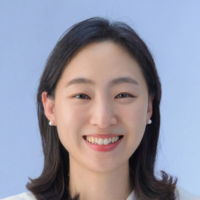 Haejin Yoon Assistant Professor, Department of Biological Sciences Ulsan National Institute of Science and Technology (Ulsan, South Korea)
Haejin Yoon Assistant Professor, Department of Biological Sciences Ulsan National Institute of Science and Technology (Ulsan, South Korea)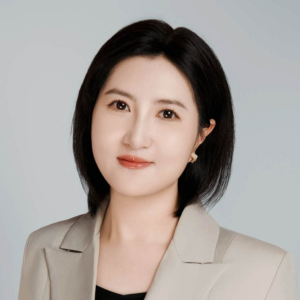 Yun Zhang Associate Professor, Department of Neurology Nanjing Drum Tower Hospital, Nanjing University, Nanjing, China
Yun Zhang Associate Professor, Department of Neurology Nanjing Drum Tower Hospital, Nanjing University, Nanjing, China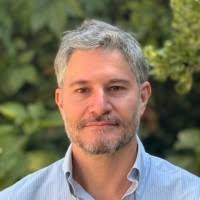 Agustín Ibáñez Scientific Director, BrainLat, Universidad Adolfo Ibáñez; Professor, Global Brain Health Research Trinity College Dublin, Dublin, Ireland
Agustín Ibáñez Scientific Director, BrainLat, Universidad Adolfo Ibáñez; Professor, Global Brain Health Research Trinity College Dublin, Dublin, IrelandAgustin Ibañez is an Argentinean neuroscientist interested in global approaches to addressing diversity and disparity in brain health. He is a full professor and Director of the Latin American Brain Health Institute (BrainLat) at Universidad Adolfo Ibáñez (UAI, Chile). Also, Agustin is a professor in global brain health, and he directs the International Program in Global Brain Health Research at the Global Brain Health Institute (GBHI), Trinity College Dublin. He is a Team Leader of the Predictive Brain Health Modelling Group at Trinity College Dublin, a Senior Atlantic Fellow at the GBHI (UCSF), and a Research Associate Professor at GBHI-Trinity College Dublin. He has received multiple research funding from different international stakeholders, including the NIH/NIA, the Alzheimer’s s Association, The Fogarty International Center, the Rainwater Charitable Foundation (Tau Consortium), Takeda, GBHI (USA); the Inter-American Development Bank (IDB); ANID (Chile); COLCIENCIAS (Colombia); DAAD (Germany); CONICET (Argentina); MRC (United Kingdom); and Horizon 2020 (Europe).
Dr. Ibanez is the founder of significant regional initiatives, such as the Multi-partner consortium to expand dementia research in Latin America (ReDLat); the Latin American and Caribbean Consortium on Dementia (LAC-CD); and the BrainLat, affiliated with the GBHI (UCSF and Trinity), launched in 2021.
Dr. Ibanez is an active member of different societies, a Team taskforce of the Human Affectome Project, a former President of the Latin-American Chapter of the Society for Social Neuroscience, a former co-director of the Institute of Behavioral Sciences and Public Policies and the Institute of Cognitive and Translational Neuroscience (Argentina), a member of the ISTAART Advisory Council and a member of the Scientific Advisory Board of AAIC (Alzheimer's Association).
He is an associate editor of different journals. His intense work has helped Latin American translational neuroscience by establishing a framework to engage scientists through internships, workshops, and master's and Ph.D. programs, organizing educational activities for the health community, and focusing on brain health in underserved and underrepresented populations. His research has been highlighted in different outlets, including the BBC, Nature, Nature News, Nature Medicine, Nature Aging, Nature Social Sciences, Discovery Channel, Popular Science, Daily Mail, Newsweek, Le Monde, and Oxford University Press.
 Saul Villeda Associate Professor, Bakar Aging Research Institute University of California, San Francisco, California, USADr. Saul Villeda obtained his B.S. degree from the University of California Los Angeles (UCLA) in Physiological Sciences in 2004, where he initially trained as a developmental biologist. He received his Ph.D. degree in Neuroscience from Stanford University in 2011, where he trained as a neural stem cell biologist. During his time at Stanford University he investigated how systemic changes in aging blood contribute to age-related impairments in neural stem cell function and cognitive processes. Dr. Villeda went on to start his independent career at the University of California San Francisco (UCSF) as a Sandler Faculty, now an Assistant Professor, in the Department of Anatomy and the Eli and Edythe Broad Center for Regeneration Medicine and Stem Cell Research. Dr. Villeda has made the exciting discovery that the aging process in the brain can be reversed by altering levels of pro-youthful and pro-aging factors in blood. This revolutionary work challenges traditional views that the aged brain lacks the inherent ability necessary to combat the effects of aging, which results in permanent functional impairments. Dr. Villeda’s research is best known for the use of innovative heterochronic parabiosis and blood plasma administration approaches to investigate the influence that exposure to young blood has in promoting molecular and cellular changes underlying cognitive rejuvenation. Dr. Villeda’s discovery of a blood-based approach to brain rejuvenation has high transformative potential with wide ranging implications for contracting age-related cognitive decline and associated dementia-related neurodegenerative diseases such as Alzheimer’s disease.
Saul Villeda Associate Professor, Bakar Aging Research Institute University of California, San Francisco, California, USADr. Saul Villeda obtained his B.S. degree from the University of California Los Angeles (UCLA) in Physiological Sciences in 2004, where he initially trained as a developmental biologist. He received his Ph.D. degree in Neuroscience from Stanford University in 2011, where he trained as a neural stem cell biologist. During his time at Stanford University he investigated how systemic changes in aging blood contribute to age-related impairments in neural stem cell function and cognitive processes. Dr. Villeda went on to start his independent career at the University of California San Francisco (UCSF) as a Sandler Faculty, now an Assistant Professor, in the Department of Anatomy and the Eli and Edythe Broad Center for Regeneration Medicine and Stem Cell Research. Dr. Villeda has made the exciting discovery that the aging process in the brain can be reversed by altering levels of pro-youthful and pro-aging factors in blood. This revolutionary work challenges traditional views that the aged brain lacks the inherent ability necessary to combat the effects of aging, which results in permanent functional impairments. Dr. Villeda’s research is best known for the use of innovative heterochronic parabiosis and blood plasma administration approaches to investigate the influence that exposure to young blood has in promoting molecular and cellular changes underlying cognitive rejuvenation. Dr. Villeda’s discovery of a blood-based approach to brain rejuvenation has high transformative potential with wide ranging implications for contracting age-related cognitive decline and associated dementia-related neurodegenerative diseases such as Alzheimer’s disease. Marc Schneeberger Pané Assistant Professor in Cellular and Molecular Physiology Yale School of Medicine, Connecticut, USAMarc received his B.S. in Pharmacy from Barcelona University, Catalonia in 2010. He studied how mitochondria is responsible for controlling whole body energy balance and metabolism in the canonical site for energy balance control (hypothalamus) with Marc Claret, PhD and earned his Ph.D. in Biomedicine at the Barcelona University, Catalonia in 2015. He then became a KAVLI postdoctoral fellow and a Pathway to Independence fellow in Prof. Jeffrey M.Friedman laboratory at The Rockefeller University. There he conducted whole mount activity maps in energy states to decipher the role of two novel subsets of neurons in the Dorsal Raphe Nucleus of the brainstem in energy balance control.
Marc Schneeberger Pané Assistant Professor in Cellular and Molecular Physiology Yale School of Medicine, Connecticut, USAMarc received his B.S. in Pharmacy from Barcelona University, Catalonia in 2010. He studied how mitochondria is responsible for controlling whole body energy balance and metabolism in the canonical site for energy balance control (hypothalamus) with Marc Claret, PhD and earned his Ph.D. in Biomedicine at the Barcelona University, Catalonia in 2015. He then became a KAVLI postdoctoral fellow and a Pathway to Independence fellow in Prof. Jeffrey M.Friedman laboratory at The Rockefeller University. There he conducted whole mount activity maps in energy states to decipher the role of two novel subsets of neurons in the Dorsal Raphe Nucleus of the brainstem in energy balance control. Christiane Wrann Associate Professor Harvard Medical School, Massachusetts, USA
Christiane Wrann Associate Professor Harvard Medical School, Massachusetts, USADr. Wrann studied veterinary medicine at the University of Veterinary Medicine Hannover, the University of Cambridge, and Cornell University. She received her Ph.D. with Summa cum laude in Immunology from the University of Veterinary Medicine Hannover in 2008. She concluded her postdoctoral in the laboratory of Dr. Bruce Spiegelman at Dana-Farber Cancer Institute and Harvard Medical School. In April 2016 she joined the faculty of the CVRC to start her own laboratory.
Dr. Wrann is an Assistant Professor in Medicine at the Cardiovascular Research Center at Massachusetts General Hospital (MGH) and the Harvard Medical School in Boston. Dr. Wrann is also an affiliate of the Henry and Allison McCance Center for Brain Health and the Harvard Stem Cell Institute. She is the recipient a K99/R00 Pathway to Independence Award from the NINDS and the Hassenfeld Cardiovascular Research Scholar Award. Her research focuses on the beneficial effects of exercise and metabolism on the brain, and specifically secreted factors in exercise as potential drug targets.
-
Available On Demand
SESSION II - Molecular and cellular mechanisms of brain aging
9:20 a.m. - 9:50 a.m. Turnover and replacement of microglia: from bench to clinical therapies
Bo Peng, Fudan University (Shanghai, China)9:50 a.m. - 10:20 a.m. Mechanistic investigation of emerency metabolic rewiring via optimization of damaged mitochondria in neurons
Sung Bae Lee, DGIST (Daegu, South Korea)10:20 a.m. - 10:35 a.m. Short Talk:
Long-lived adult-born hippocampal neurons promote successful cognitive aging
Nora Abrous, University of Bordeaux (Bordeaux, France)10:35 a.m. - 11:00 a.m. Networking Break 11:00 a.m. - 11:30 a.m. Turning up the NAD+-mitophagy axis to achieve healthy brain ageing
Evandro Fang, Univeristy of Oslo (Oslo, Norway)11:30 a.m. - 12:00 p.m. Senescence as a driver of age-related cognitive decline - therapeutic opportunities
Diana Jurk, Mayo Clinic (Minnesota, USA)12:00 p.m. - 12:15 p.m. Short Talk:
Dreams illuminates DNA & MA modification landscapes in the changing mouse brain
Magdalena Koziol, Chinese Institute for Brain Research, CIBR (Beijing, China)
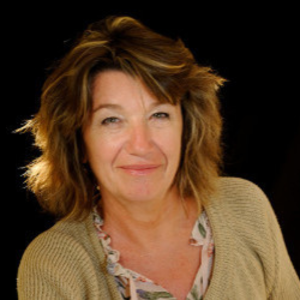 Nora Abrous Director of Research (Inserm) and Head of Neurogenesis and Pathophysiology Lab University of Bordeaux, Bordeaux, France
Nora Abrous Director of Research (Inserm) and Head of Neurogenesis and Pathophysiology Lab University of Bordeaux, Bordeaux, France Diana Jurk Associate Professor, Department of Physiology and Biomedical Engineering Mayo Clinic, Minnesota, USA
Diana Jurk Associate Professor, Department of Physiology and Biomedical Engineering Mayo Clinic, Minnesota, USADiana Jurk, Ph.D., investigates the mechanisms leading to aging and age-related diseases and has made important contributions to the fields of liver disease and neurodegeneration.
In the field of liver disease, Dr. Jurk demonstrated that inflammation is a key driver of cellular senescence in hepatocytes, contributing to impaired regenerative capacity, fibrosis and cancer. Additionally, Dr. Jurk was the first to demonstrate that clearance of senescent cells in aged, obese or diabetic mice can alleviate hepatic steatosis, suggesting that elimination of senescent cells can be a novel therapeutic strategy against nonalcoholic fatty liver disease.
In the field of neurodegeneration, Dr. Jurk was the first to identify that during aging, post-mitotic neurons acquire a senescent-like phenotype, a phenomenon driven by telomere dysfunction. As part of her independent research program, Dr. Jurk investigated further the role of cellular senescence in the brain in the context of obesity. Her team was the first to demonstrate that senescent cells inhibit neurogenesis, contributing to obesity-induced anxiety-like behavior. This led to the novel concept that senolytic drugs are a potential new therapeutic avenue for treating neuropsychiatric disorders, such as anxiety and depression.
 Evandro Fang Group Leader and Associate Professor, Department of Clinical Molecular Medicine University of Oslo and Akershus University Hospital, NorwayEvandro Fei Fang is a molecular gerontologist and is currently Associate Professor at the Department of Clinical Molecular Biology, University of Oslo and the Akershus University Hospital, Norway. He has an extensive track record of mechanistic studies on human aging and mitophagy, and his main research interests currently center on exploring the basic molecular mechanisms of human ageing and age-related diseases, with a final goal to develop interventional strategies to improve people's lifespan and healthspan. He is currently pursuing the development of novel anti-ageing compounds using artificial intelligence combined with a cross-species wet-lab validation. Dr. Fang is also co-founder of the Norwegian Centre on Healthy Ageing (NO-Age) and the Norwegian anti-Alzheimer's disease (NO-AD) networks.
Evandro Fang Group Leader and Associate Professor, Department of Clinical Molecular Medicine University of Oslo and Akershus University Hospital, NorwayEvandro Fei Fang is a molecular gerontologist and is currently Associate Professor at the Department of Clinical Molecular Biology, University of Oslo and the Akershus University Hospital, Norway. He has an extensive track record of mechanistic studies on human aging and mitophagy, and his main research interests currently center on exploring the basic molecular mechanisms of human ageing and age-related diseases, with a final goal to develop interventional strategies to improve people's lifespan and healthspan. He is currently pursuing the development of novel anti-ageing compounds using artificial intelligence combined with a cross-species wet-lab validation. Dr. Fang is also co-founder of the Norwegian Centre on Healthy Ageing (NO-Age) and the Norwegian anti-Alzheimer's disease (NO-AD) networks. Sung Bae Lee Professor (Tenured), Department of Brain Sciences DGIST, Daegu, South KoreaSungBae Lee received his B.S. and M.S. degrees in Biological Sciences from Seoul National University, Seoul, South Korea, in 1999 and 2001, respectively. He then earned his Ph.D. degree from KAIST, Daejeon, South Korea, in 2005. Currently, he is a Tenured Full Professor in the Department of Brain Sciences at DGIST, Daegu, South Korea. His primary research interests lie in elucidating the cellular and molecular pathophysiology of neurodegenerative diseases and neuronal aging.
Sung Bae Lee Professor (Tenured), Department of Brain Sciences DGIST, Daegu, South KoreaSungBae Lee received his B.S. and M.S. degrees in Biological Sciences from Seoul National University, Seoul, South Korea, in 1999 and 2001, respectively. He then earned his Ph.D. degree from KAIST, Daejeon, South Korea, in 2005. Currently, he is a Tenured Full Professor in the Department of Brain Sciences at DGIST, Daegu, South Korea. His primary research interests lie in elucidating the cellular and molecular pathophysiology of neurodegenerative diseases and neuronal aging.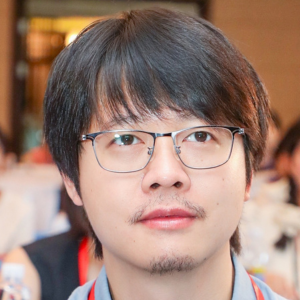 Bo Peng Professor and Assistant Director Institute for Translational Brain Research, Fudan University, Shanghai, ChinaBo Peng is a professor at Fudan University. Prof. Peng’s research is centered on microglia in the central nervous system, with a particular focus on elucidating the mechanisms of their aging, death, and regeneration. Based on these insights, he has pioneered a novel therapeutic strategy involving microglia replacement for the treatment of neurological disorders, and in 2020, his team achieved the world’s first efficient microglia replacement. Furthermore, his group conducted the world’s first clinical trial of microglia replacement therapy in 2024, demonstrating its effectiveness and paving a new path for treating neurological diseases. His key research findings have been published as last author in high-impact journals including Science, Nature Neuroscience, Nature Aging, Neuron, Cell Reports, Nature Communications, and eLife.
Bo Peng Professor and Assistant Director Institute for Translational Brain Research, Fudan University, Shanghai, ChinaBo Peng is a professor at Fudan University. Prof. Peng’s research is centered on microglia in the central nervous system, with a particular focus on elucidating the mechanisms of their aging, death, and regeneration. Based on these insights, he has pioneered a novel therapeutic strategy involving microglia replacement for the treatment of neurological disorders, and in 2020, his team achieved the world’s first efficient microglia replacement. Furthermore, his group conducted the world’s first clinical trial of microglia replacement therapy in 2024, demonstrating its effectiveness and paving a new path for treating neurological diseases. His key research findings have been published as last author in high-impact journals including Science, Nature Neuroscience, Nature Aging, Neuron, Cell Reports, Nature Communications, and eLife. -
Available On Demand
SESSION III - Modelling aging and neurodegenerative diseases
1:25 p.m. - 1:55 p.m. Immunotherapy rejuvenates brain immunity to alleviate neuroinflammation and combat brain aging and age-related dementia
Michal Schwartz, Weizmann Institute of Science (Rehovot, Israel)1:55 p.m. - 2:25 p.m. Astrocytic hemoglobin and maob as the therapeutic targets for oxidative-stress-driven neurodegenerative diseases, obesity, and aging
C. Justine Lee, Institute for Basic Sciences (Daejon, South Korea)2:25 p.m. - 2:40 p.m. Short Talk:
The telo-cut mouse: a next-generation tool to investigate telomere damage in aging and pathology
Seunghwa Woo, Mayo Clinic (Minnesotta, USA)2:40 p.m. - 3:15 p.m. Networking Break 3:15 p.m. - 3:45 p.m. Investigation of APOE4 effect on glial crosstalk
Inhee Mook, Seoul National University (Seoul, South Korea)3:45 p.m. - 4:15 p.m. Excitatory neuronal ERBB4 drives early pathophysiology of Alzheimer’s disease
Won-Suk Chung, KAIST (Daejon, South Korea)4:15 p.m. - 4:30 p.m. Short Talk:
A multi-modal platform for exploring correlations between neural activity, metabolism, and pathophysiology in brain assembloids
Seongmin Kim, Sungkyunkwan University, Suwon, South Korea
 Inhee Mook-Jung Professor, Department of Biochemistry and Biomedical Sciences Seoul National University, College of Medicine, Seoul, South Korea
Inhee Mook-Jung Professor, Department of Biochemistry and Biomedical Sciences Seoul National University, College of Medicine, Seoul, South KoreaInhee Mook-Jung is a South Korean Neuroscientist. She works on Alzheimer's disease pathogenesis. Professor Mook drew attention in 2006 for discovery that ERK1/2 proteins were involved in the regulation of beta amyloid, a substance that causes dementia. She also identified the mechanism and physiological function of beta amyloid. In particular, she identified the relationship between RAGE, a transport protein that delivers beta-amyloid into the brain, and the pathogenesis of Alzheimer's disease, and based on this, she developed a system that can screen RAGE modulators.
She is leading the Alzlab (a research group on Alzheimer at Seoul National University College of Medicine) and since August 2020 she works as the Director of the Korea Dementia Research Center.
 Seongmin Kim Research Professor, Department of Biophysics, Institute of Quantum Biophysics Sungkyunkwan University (Suwon, South Korea)
Seongmin Kim Research Professor, Department of Biophysics, Institute of Quantum Biophysics Sungkyunkwan University (Suwon, South Korea) Won-Suk Chung Associate Director, Center for Vascular Research, Institute for Basic Science (IBS) Associate Professor, Department of Biological Sciences, KAIST, Daejon, South Korea
Won-Suk Chung Associate Director, Center for Vascular Research, Institute for Basic Science (IBS) Associate Professor, Department of Biological Sciences, KAIST, Daejon, South KoreaDr. Won-Suk Chung is an Associate Professor in the Department of Biological Sciences at KAIST and Associate Director of the Center for Vascular Research at the Institute for Basic Science (IBS). His pioneering research has established that the brain’s resident immune cells, astrocytes and microglia, play essential roles in neural circuit refinement and homeostasis by selectively eliminating unnecessary synapses through phagocytosis. His team has further demonstrated that these phagocytic activities are critical not only for maintaining synaptic and circuit integrity but also for clearing central nervous system (CNS)–enriched antigens such as myelin debris, amyloid-β, and tau.
At the IBS Center for Vascular Research, Dr. Chung aims to elucidate how the brain’s resident immune cells communicate with systemic immune responses through the brain vasculature at CNS borders, thereby influencing brain development, maintenance, and pathology. Through these efforts, his laboratory seeks to uncover novel therapeutic strategies for CNS disorders, including autoimmune, neuroinflammatory, and neurodegenerative diseases.
 C. Justin Lee Co-Director, Center for Cognition and Sociality Institute for Basic Science, South KoreaDr. Lee is the co-director of the Center for Cognition and Sociality, established in July 2012. He earned his B.A. in Chemistry from The University of Chicago before getting his Ph.D. from Columbia University in 2001, and later worked in Department of Pharmacology at Emory University as a postdoctoral fellow. In 2004 he joined KIST as a senior research scientist and later served as the Director of Center for Neuroscience. In 2009, he founded the WCI Center for Functional Connectomics as a part of World Class Institute Program. In 2015 he became the recipient of Creative Research Investigator Award to establish the Center for Glia-Neuron Interaction at KIST to serve as the Director of the Center before taking up his position in IBS.
C. Justin Lee Co-Director, Center for Cognition and Sociality Institute for Basic Science, South KoreaDr. Lee is the co-director of the Center for Cognition and Sociality, established in July 2012. He earned his B.A. in Chemistry from The University of Chicago before getting his Ph.D. from Columbia University in 2001, and later worked in Department of Pharmacology at Emory University as a postdoctoral fellow. In 2004 he joined KIST as a senior research scientist and later served as the Director of Center for Neuroscience. In 2009, he founded the WCI Center for Functional Connectomics as a part of World Class Institute Program. In 2015 he became the recipient of Creative Research Investigator Award to establish the Center for Glia-Neuron Interaction at KIST to serve as the Director of the Center before taking up his position in IBS. Michal Schwartz Professor, Department of Brain Sciences Weizmann Institute of Science, Rehovot, Israel
Michal Schwartz Professor, Department of Brain Sciences Weizmann Institute of Science, Rehovot, IsraelMichal Schwartz is an Israeli neuroimmunologist who carried out pioneering research on the relationship between the brain and the immune system. Her groundbreaking research on Alzheimer disease helped to overturn the long-standing notion that immunity should be suppressed in chronic neurodegenerative disease.
Schwartz earned a doctorate in immunology from the Weizmann Institute of Science in Rehovot, Israel. Following a postdoctoral fellowship at the University of Michigan, where she studied nerve regeneration, Schwartz returned to the Weizmann Institute, becoming a senior scientist in the department of neurobiology and later, a full professor. In 2016 she held the Maurice and Ilse Katz Professorial Chair in Neuroimmunology.
Schwartz was recognized with numerous honours throughout her career, including the ARVO (Association for Research in Vision and Ophthalmology, Inc.) Friedenwald Award (2002) and the Blumberg Outstanding Medical Research Scientist Prize (2015). In 2014 she was elected president of the International Society of Neuroimmunology and was made an honorary member of the World Immunopathology Organization.
-
Available On Demand
KEYNOTE ADDRESS: Aging through the lens of outliers
4:30 p.m. - 5:20 p.m.
 Tony Wyss-Coray Professor of Neurology and Neurological Sciences Stanford School of Medicine, California, USA
Tony Wyss-Coray Professor of Neurology and Neurological Sciences Stanford School of Medicine, California, USATony Wyss-Coray is the D.H. Chen Distinguished Professor of Neurology and Neurological Sciences and the Director of the Phil and Penny Knight Initiative for Brain Resilience at Stanford University. His lab studies brain aging and neurodegeneration with a focus on age-related cognitive decline and Alzheimer’s disease. The Wyss-Coray research team discovered that circulatory blood factors can modulate brain structure and function and factors from young organisms can rejuvenate old brains. Current studies focus on the molecular basis of the systemic communication with the brain by employing a combination of genetic, cell biology, and –omics approaches in mice, and humans. Wyss-Coray has presented his ideas at Global TED, the Tencent WE Summit, the World Economic Forum, and he was voted Time Magazine’s “The Health Care 50” most influential people transforming health care in 2018. He co-founded Alkahest Inc. and several other companies targeting Alzheimer’s and neurodegeneration; he is a AAAS Fellow and has been the recipient of an NIH Director’s Pioneer Award, a Zenith Award from the Alzheimer’s Association, and a NOMIS Foundation Award.
-
Available On Demand
SESSION IV - Biomarkers, diagnostics and therapeutic interventions in brain aging
9:00 a.m. - 9:30 a.m. Precision medicine approach to Alzheimer's disease
Jin-Tai Yu, Fudan University (Shanghai, China)9:30 a.m. - 10:00 a.m. Cross-regional disease trajectories and selective cellular vulnerabilities in Alzheimer’s disease
Ed Lein, Allen Institute (Washington, USA)10:00 a.m. - 10:15 a.m. Short Talk: Heterogeneous atrophy trajectories and associated genetic variants in alzheimer's brain
Yoontae Kim, Chosun University, Gwangju, South Korea10:15 p.m. - 11:00 a.m. Networking Break 11:00 a.m. - 11:30 a.m. What should we do to prevent dementia
Gill Livingston, University College of London (London, UK)11:30 a.m. - 12:00 p.m. Advancing Dementia Risk Prediction and Prevention in Africa through Precision Health Approaches: innovations from The Africa-FINGERS Program
Chinedu Momoh, Wake Forest University (North Carolina, USA)12:00 p.m. - 12:15 p.m. Short Talk:
Virus-induced senescence as a driver and therapeutic target in accelerated brain aging
Julio Aguado, University of Colorado (Colorado, USA)
 Gill Livingston Professor, Division of Psychiatry University College of London, London, United KingdomGill Livingston is a clinical academic, working with people with suspected or confirmed dementia and their families. Her work is interdisciplinary and considers mechanisms through epidemiological and biopsychosocial enquiry, using them to co-design evidence-based interventions and test them. She leads the Lancet Standing Commission on Dementia Prevention, Intervention and Care, 2017 2020 and 2024 These produced new research and meta-analyses of life-course risk and an overview of current knowledge on interventions. The findings have substantial implications in preventing and delaying a significant proportion of dementia. They have resulted in changes in, for example, WHO, UK and US policy which aim to reduce dementia risk. She also researches interventions to improve the lives of people with dementia and their families and staff caring for them and particularly consider underserved and minority communities. START for family carers has long-lasting effects on depression and anxiety symptoms, increases quality of life, is cost-effective and might save money. It has been culturally adapted in the UK and translated and adapted in Japan, Spain, India and Portugal and is currently being translyted and adpated in Brazil for role out here. The results from DREAMS START led by Penny Rappaport and Dr. Livingston, aiming to improve sleep in family carers, are just about to be published.
Gill Livingston Professor, Division of Psychiatry University College of London, London, United KingdomGill Livingston is a clinical academic, working with people with suspected or confirmed dementia and their families. Her work is interdisciplinary and considers mechanisms through epidemiological and biopsychosocial enquiry, using them to co-design evidence-based interventions and test them. She leads the Lancet Standing Commission on Dementia Prevention, Intervention and Care, 2017 2020 and 2024 These produced new research and meta-analyses of life-course risk and an overview of current knowledge on interventions. The findings have substantial implications in preventing and delaying a significant proportion of dementia. They have resulted in changes in, for example, WHO, UK and US policy which aim to reduce dementia risk. She also researches interventions to improve the lives of people with dementia and their families and staff caring for them and particularly consider underserved and minority communities. START for family carers has long-lasting effects on depression and anxiety symptoms, increases quality of life, is cost-effective and might save money. It has been culturally adapted in the UK and translated and adapted in Japan, Spain, India and Portugal and is currently being translyted and adpated in Brazil for role out here. The results from DREAMS START led by Penny Rappaport and Dr. Livingston, aiming to improve sleep in family carers, are just about to be published. Ed Lein Senior Investigator, Director of Human Cell Types Program Allen Institute for Brain Science and Washington University, Washington, USA
Ed Lein Senior Investigator, Director of Human Cell Types Program Allen Institute for Brain Science and Washington University, Washington, USAEd Lein is a Senior Investigator at the Allen Institute for Brain Science and an Affiliate Professor in the Departments of Neurological Surgery and Laboratory Medicine and Pathology (DLMP) at the University of Washington. He received a B.S. in biochemistry from Purdue University and a Ph.D. in neurobiology from UC Berkeley, and performed postdoctoral work at the Salk Institute for Biological Studies.
Ed joined the Allen Institute in 2004 and has provided scientific leadership for the creation of large-scale anatomical, cellular and gene expression atlases of the adult and developing mammalian brain as catalytic community resources, including the inaugural Allen Mouse Brain Atlas and a range of developmental and adult human and non-human primate brain atlases. Particular current research interests involve the use of single cell genomics as a core phenotype to understand brain cellular organization, mammalian conservation and human specificity, define cellular vulnerability in disease, and identify regulatory elements that allow cell type-specific targeting and manipulation.
He leads the Human Cell Types Department, which aims to create comprehensive cell atlases of the human and non-human primate brain, understand what is disrupted in Alzheimer’s disease, and create tools for precision genetic targeting of brain cell types as transformative tools for basic neuroscience and gene therapy. He is also a member of the BRAIN Initiative Cell Atlas Network (BICAN), a member of the Organizing Committee of the Human Cell Atlas (HCA), and a CIFAR fellow.
Ed’s areas of expertise include developmental neurobiology, structural and cellular neuroanatomy, transcriptomics and epigenomics, comparative neurobiology, and Alzheimer’s disease. His research program work encompasses brain cell atlasing, comparative neurobiology, Alzheimer’s disease, and gene therapy.
 Chinedu Momoh Associate Professor, Department of Epidemiology and Prevention Wake Forest University School of Medicine, North Carolina, USAChi Udeh-Momoh, PhD, FHEA, is a Translational Neuroscientist with expertise in dementia prediction, and prevention, based at Wake Forest University School of Medicine (WFUSM); and affiliated as an Academic Faculty member at Aga Khan University Kenya, The Sheffield Institute for Translational Neuroscience, UK and Karolinska Institute Sweden. At WFUSM, she leads the Udeh-Momoh Lab for Global Brain Health (U-M = BRAIN) focusing on translational research to advance equitable and culturally informed strategies for promoting successful aging, by investigating the intersectional relationships of biological, psycho-sociological, and economic contributors to accelerated brain and cognitive aging, and dementia across the life course. In her dual roles as co-Director of the Imarisha Centre for Brain Health and Aging and Lead of the Genomics and Biomarker Core at the Brain and Mind Institute Kenya, she is developing capacity for dementia and brain aging research, education, and care while collaborating with Mental Health and Neuroscience subject experts, clinicians, and educators at the Aga Khan University, to ultimately build the neuroscience capacity and strength across Global South regional partner institutions, including Pakistan. She is also a Senior Atlantic Fellow for Equity in Brain Health. In 2018, she initiated the multinational AFRICA-FINGERS project (as Chief Investigator) across 14 African countries, including Kenya and Nigeria, that aims to promote healthy ageing and mitigate brain health and biomarker-access inequalities through culturally appropriate, sustainable multimodal intervention strategies in African populations. She co-Leads the World-Wide FINGERS Biomarker Consortium, as well as the Global CEOi/Davos Alzheimer’s Collaborative workstream guiding Implementation of Blood-based-biomarkers in Clinical Practice and is an Executive committee member of the Biofluids-biomarker-based PIA of the Alzheimer’s Association ISTAART (2018 - present), where she is Founding Chair of the Saliva Biomarkers for Dementia Research workgroup (2021 - present). Key outputs include white paper describing critical pre-analytical considerations for the analysis of ADRD biomarkers in saliva samples. She is also co- founder of the Female Brain and Endocrine Research (FEMBER) consortium, and sits on the NIH-funded National Academy of Science, Engineering and Medicine committee to determine research priorities to address the global burden of Alzheimer’s disease and related dementia (2023-present), as well as the WHO Guideline Development Group to provide recommendations for global strategies for risk reduction of cognitive impairment and dementia (2024-Present).Having completed a competitive CASE PhD studentship in Neuroscience and Neuroendocrinology at the MRC Centre for Synaptic Plasticity at the University of Bristol (2010-2014), her research elucidates dementia prevention bio-mechanistic pathways and strategies across global populations towards equitable ADRD biomarker-driven detection and prediction practices, adopting a translational approach integrating human clinical studies with experimental animal models. Specifically, her research leverages precision health advances to identify and address biopsychosocial determinants of ADRD risk in the context of sex, gender, and ethno-racial disparities, and towards development of contextual precision preventive strategies. She previously conducted research at Imperial College London, where components of her work received funding from Gates Ventures and industry partners - Janssen, Merck and Takeda. She currently receives competitively awarded funding for her multi-million-dollar research program from the National Institute of Health, Alzheimer’s Association, the Davos Alzheimer’s Collaborative, UKRI Medical Research Council, the UK Defense and Security Accelerator fund, Wellcome Trust and the Global Brain Health Institute. Dr. Udeh-Momoh additionally leads several multinational initiatives to address gender and racial disparities in medical research and academia and sits on the Board of Trustees of the British Society for Neuroendocrinology as the Grants committee Deputy Chair and Equity, Diversity and Inclusion Lead.Overall, her work is at the forefront of translational neuroscience, bringing together fundamental discoveries in neuroscience with the goal of improving human health and wellbeing.
Chinedu Momoh Associate Professor, Department of Epidemiology and Prevention Wake Forest University School of Medicine, North Carolina, USAChi Udeh-Momoh, PhD, FHEA, is a Translational Neuroscientist with expertise in dementia prediction, and prevention, based at Wake Forest University School of Medicine (WFUSM); and affiliated as an Academic Faculty member at Aga Khan University Kenya, The Sheffield Institute for Translational Neuroscience, UK and Karolinska Institute Sweden. At WFUSM, she leads the Udeh-Momoh Lab for Global Brain Health (U-M = BRAIN) focusing on translational research to advance equitable and culturally informed strategies for promoting successful aging, by investigating the intersectional relationships of biological, psycho-sociological, and economic contributors to accelerated brain and cognitive aging, and dementia across the life course. In her dual roles as co-Director of the Imarisha Centre for Brain Health and Aging and Lead of the Genomics and Biomarker Core at the Brain and Mind Institute Kenya, she is developing capacity for dementia and brain aging research, education, and care while collaborating with Mental Health and Neuroscience subject experts, clinicians, and educators at the Aga Khan University, to ultimately build the neuroscience capacity and strength across Global South regional partner institutions, including Pakistan. She is also a Senior Atlantic Fellow for Equity in Brain Health. In 2018, she initiated the multinational AFRICA-FINGERS project (as Chief Investigator) across 14 African countries, including Kenya and Nigeria, that aims to promote healthy ageing and mitigate brain health and biomarker-access inequalities through culturally appropriate, sustainable multimodal intervention strategies in African populations. She co-Leads the World-Wide FINGERS Biomarker Consortium, as well as the Global CEOi/Davos Alzheimer’s Collaborative workstream guiding Implementation of Blood-based-biomarkers in Clinical Practice and is an Executive committee member of the Biofluids-biomarker-based PIA of the Alzheimer’s Association ISTAART (2018 - present), where she is Founding Chair of the Saliva Biomarkers for Dementia Research workgroup (2021 - present). Key outputs include white paper describing critical pre-analytical considerations for the analysis of ADRD biomarkers in saliva samples. She is also co- founder of the Female Brain and Endocrine Research (FEMBER) consortium, and sits on the NIH-funded National Academy of Science, Engineering and Medicine committee to determine research priorities to address the global burden of Alzheimer’s disease and related dementia (2023-present), as well as the WHO Guideline Development Group to provide recommendations for global strategies for risk reduction of cognitive impairment and dementia (2024-Present).Having completed a competitive CASE PhD studentship in Neuroscience and Neuroendocrinology at the MRC Centre for Synaptic Plasticity at the University of Bristol (2010-2014), her research elucidates dementia prevention bio-mechanistic pathways and strategies across global populations towards equitable ADRD biomarker-driven detection and prediction practices, adopting a translational approach integrating human clinical studies with experimental animal models. Specifically, her research leverages precision health advances to identify and address biopsychosocial determinants of ADRD risk in the context of sex, gender, and ethno-racial disparities, and towards development of contextual precision preventive strategies. She previously conducted research at Imperial College London, where components of her work received funding from Gates Ventures and industry partners - Janssen, Merck and Takeda. She currently receives competitively awarded funding for her multi-million-dollar research program from the National Institute of Health, Alzheimer’s Association, the Davos Alzheimer’s Collaborative, UKRI Medical Research Council, the UK Defense and Security Accelerator fund, Wellcome Trust and the Global Brain Health Institute. Dr. Udeh-Momoh additionally leads several multinational initiatives to address gender and racial disparities in medical research and academia and sits on the Board of Trustees of the British Society for Neuroendocrinology as the Grants committee Deputy Chair and Equity, Diversity and Inclusion Lead.Overall, her work is at the forefront of translational neuroscience, bringing together fundamental discoveries in neuroscience with the goal of improving human health and wellbeing. Jin-Tai Yu Deputy Head, Department of Neurology Huashan Hospital, Fudan University, Shanghai, ChinaDr. Yu is the Deputy Head of Department of Neurology in Huashan Hospital and the Vice Director of the Institute of Neurology, WHO Collaborating Center for Research and Training in Neurosciences, Fudan University, Shanghai, China. He also directs the Memory Disorders Subspecialty, National Center for Neurological Disorders in China, Huashan Hospital. Currently, he is focusing on basic and clinical research for Alzheimer’s disease and related dementia, and the PI of several national grants on dementia, including Science and Technology Innovation 2030 Major Projects and National Natural Science Foundation of China. He has published more than 100 research papers in Nature Human Behaviour, Nature Aging, Lancet Neurology, Science Advances, Alzheimer’s & Dementia, Nature communications, Nature Mental Health, et al. that have been cited more than 20000 times by peer scientists in the field. He is currently the Editor-in-Chief of Brain Disorders, Associate Editor-in-Chief of Annals of Translational Medicine, Senior Editor of Journal of Alzheimer’s Disease.
Jin-Tai Yu Deputy Head, Department of Neurology Huashan Hospital, Fudan University, Shanghai, ChinaDr. Yu is the Deputy Head of Department of Neurology in Huashan Hospital and the Vice Director of the Institute of Neurology, WHO Collaborating Center for Research and Training in Neurosciences, Fudan University, Shanghai, China. He also directs the Memory Disorders Subspecialty, National Center for Neurological Disorders in China, Huashan Hospital. Currently, he is focusing on basic and clinical research for Alzheimer’s disease and related dementia, and the PI of several national grants on dementia, including Science and Technology Innovation 2030 Major Projects and National Natural Science Foundation of China. He has published more than 100 research papers in Nature Human Behaviour, Nature Aging, Lancet Neurology, Science Advances, Alzheimer’s & Dementia, Nature communications, Nature Mental Health, et al. that have been cited more than 20000 times by peer scientists in the field. He is currently the Editor-in-Chief of Brain Disorders, Associate Editor-in-Chief of Annals of Translational Medicine, Senior Editor of Journal of Alzheimer’s Disease.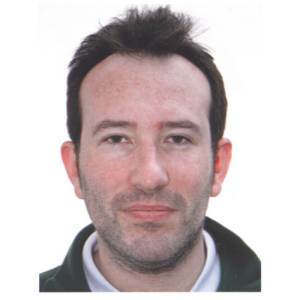 Julio Aguado Assistant Professor University of Colorado, Colorado, USA
Julio Aguado Assistant Professor University of Colorado, Colorado, USA -
Available On Demand
Discussion -- Brain-wide functional mapping with neural modulation
9:00 a.m. - 9:20 a.m.
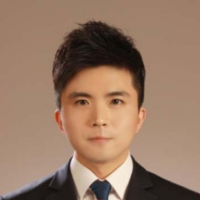 Won Beom Jung Senior Researcher, Emotion, Cognition & Behavior Research Group Korean Brain Research Institute (Daegu, Korea)
Won Beom Jung Senior Researcher, Emotion, Cognition & Behavior Research Group Korean Brain Research Institute (Daegu, Korea)Won Beom Jung, Ph.D., is a senior researcher at the Korea Brain Research Institute (KBRI), specializing in ultrahigh-field rodent fMRI and multiscale neuroimaging.
His research combines high-resolution BOLD/CBV fMRI with optogenetic and chemogenetic tools to map brain-wide circuits and link microcircuit mechanisms to large-scale network organization.
